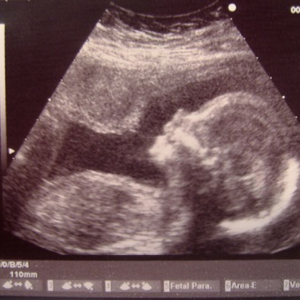 Treatment with NSAIDs is associated with subfertility in women with spondyloarthritis, ACR Convergence 2022 meeting was told.
Treatment with NSAIDs is associated with subfertility in women with spondyloarthritis, ACR Convergence 2022 meeting was told.
The findings are consistent with the known action of NSAIDs in blocking prostaglandins which in turn can impact both ovulation and implantation.
Clinicians should therefore recommend a temporary therapeutic switch away from NSAIDs in their SpA patients who were wanting to conceive.
Associate Professor Sabrina Hamroun, from the Cochin University Hospital in Paris, presented the results from an observational study of 88 SpA patients enrolled in the French GR2 cohort from 2015 to 2021.
The GR2 cohort is a prospective cohort of pregnancies and obstetric morbidity in women with autoimmune diseases from across 76 tertiary centers in France.
Associate Professor Hamroun told the meeting that patients were enrolled from preconception and had a mean age of 31.8 years. The women’s SpA disease activity was well controlled – mean preconceptional BASDAI score was 2.9 – with mostly biologics (69.3%), NSAIDs (26.1%), csDMARDs (13.6%), and corticosteroids (9.1%).
During the follow-up period, 56 (63.6%) achieved pregnancy with a mean time to conception of 16.1 months.
The study found 40 women (45%) to be subfertile using a definition of time to conception >12 months or not achieving pregnancy.
While the study was not controlled, Associate Professor Hamroun said previous French data suggested the mean time to conception in healthy women was about 7 months.
She said the study found a significant association between the use of NSAIDs during preconception and longer time to conception (HR 3.01; 95% CI [2.15-3.85]; p = 0.01).
This was after adjusting for factors including age, BMI, previous pregnancies, disease duration and activity, smoking status, form of SpA (axial, peripheral, or both), and treatment exposure.
There was also an association between increasing age and longer time to conception (HR 1.22; 95% CI [1.08-1.40]; p < 0.001).
Associate Professor Hamroun said the study provided the first evidence of the deleterious impact of NSAIDs on fertility in women with SpA.
“This negative impact of NSAIDs on fertility should lead us to consider their supervised discontinuation in cases of difficulty conceiving.”
“In other conditions, the impact of NSAIDs is reversible. So once they stop treatment, the negative impact of NSAIDs on fertility is stopping too… really fast, it’s an on-off effect. This is good to keep this effect in mind when women have difficulties conceiving,” she told the limbic.
She said the cohort was ongoing and with a larger sample size might also be able to provide insights into the impact of treatment dose on fertility.